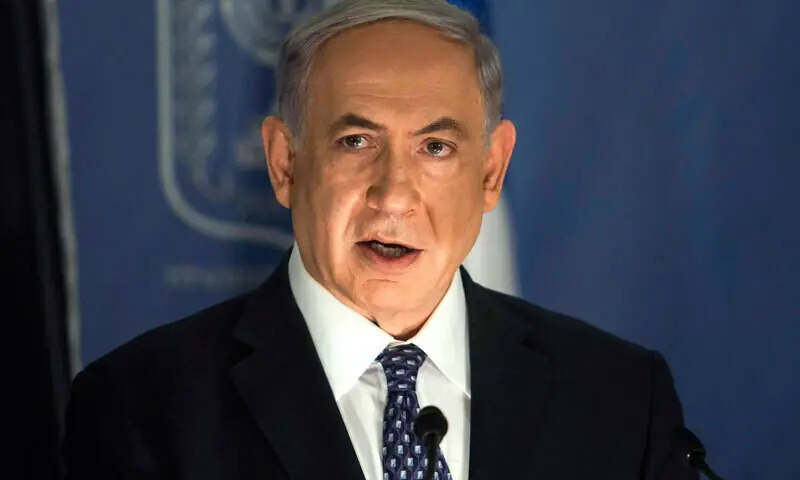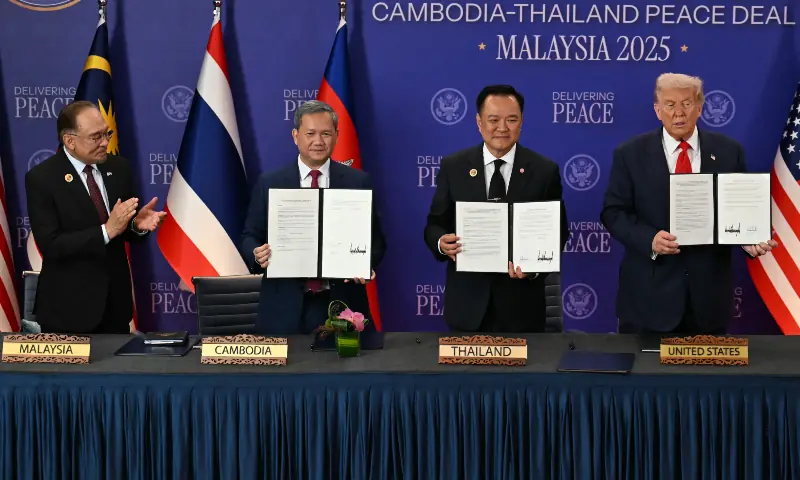Without a majority in parliament and surrounded by allies outraged by his acceptance of a US-brokered ceasefire in Gaza, Prime Minister Benjamin Netanyahu appears to have set his sights on Israel’s upcoming elections.
A political phoenix, Netanyahu is the country’s longest-serving prime minister, has been its dominant political figure for decades, and heads one of the most right-wing coalitions in Israel’s history.
But it does not have an absolute parliamentary majority after an ultra-Orthodox party resigned in July, protesting against the government’s failure to pass a law to exempt its community from military service.
The summer parliamentary recess came at just the right time to protect the government, which now has only 60 of 120 seats, from no-confidence motions.
But the resumption of Knesset work on October 20 heralded the return of transactional politics and potential threats to the government.
Under pressure from US President Donald Trump, Netanyahu agreed to a ceasefire with Hamas that took effect on October 10 after more than two years of Israeli attack on Gaza.
His far-right allies vehemently denounced the deal, arguing that the military should retain control of the entire Gaza Strip and crush the Palestinian movement forever.
And while they aren’t abandoning the government ship, they are raising the price to keep them on board.
June 2026 elections?
“The coalition has been weakened by the ceasefire agreement,” said independent analyst Michael Horowitz. “For Netanyahu, the issue is no longer so much about preserving his coalition until the end but rather positioning himself to win the next elections, even if they are brought forward,” he said. AFP.
In a televised interview on October 18, Netanyahu said he would run in the next election and expected to win.
Those elections are required to be held by the end of October 2026, but Netanyahu, who just turned 76, can call an early election or be forced to hold a new vote if another of his allied parties leaves the ruling coalition.
Far-right National Security Minister Itamar Ben Gvir has already threatened to stop voting with the coalition if his bill calling for “the death penalty for terrorists” is not put to a parliamentary vote by November 9.
Netanyahu must contend with ideological differences with his far-right partners, who favor resuming the war in Gaza with a view to seizing the territory, from which Israel unilaterally withdrew in 2005.
He must also deal with pressure from his allies in the ultra-Orthodox Sephardic Shas party, which has 11 lawmakers and has distanced itself from the government.
Without formally leaving the coalition, Shas ministers resigned from the cabinet in July over the issue of exemptions from military service for ultra-Orthodox Jews. The other ultra-Orthodox party in the coalition, United Torah Judaism, left both the government and the coalition.
Several Israeli journalists, including prominent Amit Segal, known to be close to Netanyahu, have suggested that the prime minister would opt for June 2026 to hold early elections.
For now, Netanyahu must overcome several obstacles to remain in power, most notably the issue of mandatory military service for ultra-Orthodox Jews.
Shas says it will withdraw its support unless exemption from military service is enshrined in law, while the far right and many in Netanyahu’s Likud party want to force ultra-Orthodox conscription.
Likud in front
If the fragile ceasefire holds, Netanyahu will also have to find post-war solutions for Gaza that satisfy his far-right partners.
They demand a vote on at least partial annexation of the occupied West Bank in exchange for what they consider a renunciation of Gaza.
The Trump administration has repeatedly expressed opposition to such a move.
Israeli financial newspaper Calcalist He said that in a bid to shore up its unity, the coalition planned to quickly pass laws that would give it a greater chance of electoral victory.
Among them would be the reduction of the threshold of votes needed to be represented in parliament, an apparent gift to Finance Minister Bezalel Smotrich, whose far-right party, Religious Zionism, would not reach the limit required under current rules, according to several polls.
Another measure would be to lower the voting age to 17, which would give a demographic advantage to ultra-Orthodox parties.
Netanyahu, who is on trial for several corruption cases, is assured of his re-election as head of the Likud at the end of November, as there are no other candidates.
And despite strong popular discontent with the government, his party remains the favorite according to all polls.







